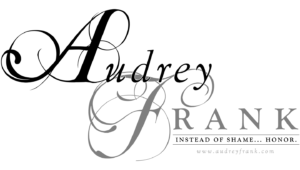Were We Created for Independence?
In the past few years, as I have deeply examined the Bible through the lenses of honor and shame, many of my opinions and beliefs have been challenged at the core. As Independence Day in the United States draws near, I am thinking critically today about the role and purpose of independence and its genesis.
I have lived in nations where corruption drove governments to withhold resources and help from their people, driving them to a pitiful dependence upon unreliable leaders. I was born into a nation whose very inception was the accomplishment of independence by a few courageous men bold enough to fight for new ideas and equality.
I learned as a small child to take care of myself, and independence grew like a mighty oak tree in my spirit. And it served me well, for a time. Independence aids in survival.
My question today is this, were we created for independence? What is God’s view?
As I look at the genesis of humanity’s independence, I am struck by the awful circumstances from which it sprang. A relationship once beautiful, harmonious, and whole was severed by sin, shame, and fear.
Adam and Eve knew the intimacy of complete union with their Creator. Until they believed the lie that changed everything. The lie that they did not really need God—He did not really have their best interest in mind.
This false belief catapulted humanity into the first ever independence, and consequently, separation from God.
God’s chase began that very moment: the pursuit of mankind in his shame, fear, and guilt. God’s chase would end in death on a cross and resurrection. This was the only way to transform man from independence and separation from God to dependence and relationship again.
The Creator Himself lives in a state of interdependence. The Father, the Son and the Holy Spirit each function differently but in complete harmony. They are interlinked, inseparable. If any had declared independence at any time we would not exist. Genesis 1:26 says, “Let us make humankind in our image…” (NRSV).
I thought so until as an adult my relationships stagnated, my independence pulling them up short before they could deepen. The first ten years of my marriage were lessons in learning dependence can be a good thing. Fear stopped me for a very long time. What if he let me down? Well, if he did, I was ready, my fierce independence available to rescue me again.
People let people down. Dependence can be scary.
Dependence has many different nuances. To be dependable is good and honorable, a desired character trait. To be dependent can be good or bad. Children depend on their parents for food, clothing, and shelter, and this is necessary. But in the dating world, no one wants to date a clingy, “dependent” girl or guy.
We all want someone we can depend on. But don’t you tell me what to do or what to think! I want to be independent in my opinions.
Is it good or is it bad? Or both?
The core question today, however, is this: Were we created to be independent?
Now seems to be a good time in the history of the United States for Christians to ask this question.
Independence needs a good, thorough re-examination.
We have been driven into a corner, and everyone is yelling all at once, not really caring what others are saying. The independent individualism on display today is bearing poisonous fruit. How ironic that poisonous fruit was the great temptation that expelled Adam and Eve from God’s presence in the first place.
It has been said that nations do not change; people do. I suggest on this Fourth of July that we go back to Genesis, and take a closer look at the example set forth for us in the earliest days of man and woman’s union with their Creator.
Interdependence might just change everything.
Your thoughts around today’s question are important. Please speak up and join the conversation by commenting below or emailing me at audreyfrank139@gmail.com.


No Comments